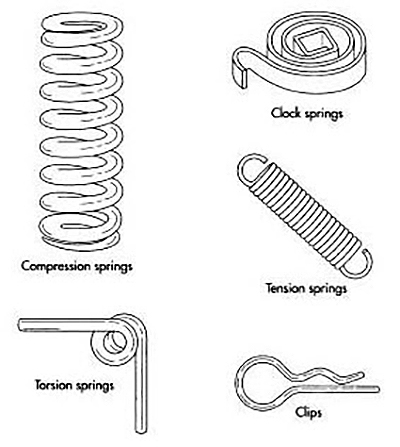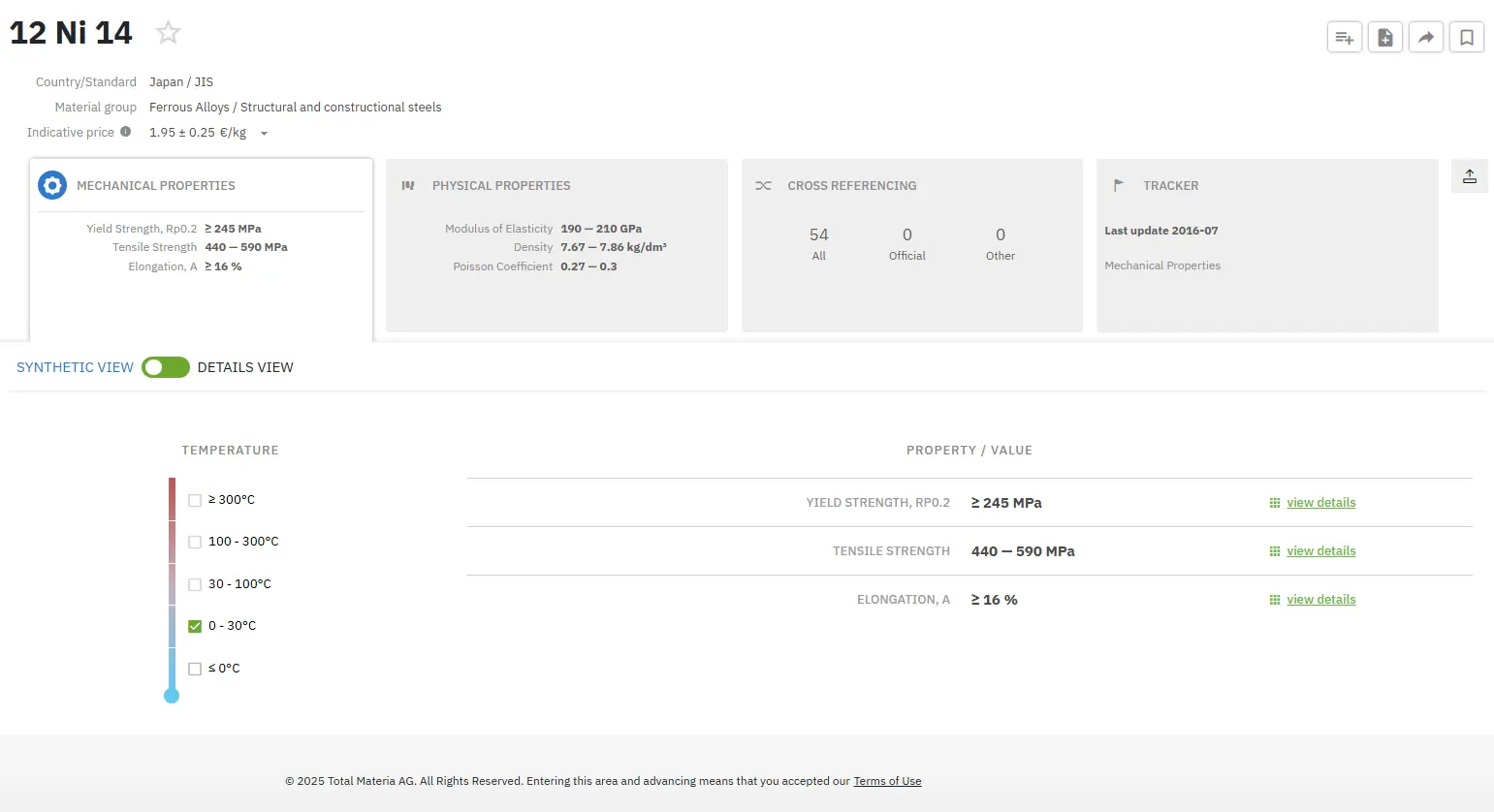Spring Steels
Abstract
The term yield strength refers to a material's ability to endure significant bending or twisting and return to its original shape without deforming.
Spring steel alloys feature the unique characteristic of being able to withstand considerable twisting or bending forces without any distortion. Products made from these steel alloys can be bent, compressed, extended, or twisted continuously, and they will return to their original shape without suffering any deformation.
Introduction to Spring Steels
Spring steel alloys are distinguished by their exceptional ability to withstand considerable twisting or bending forces without permanent deformation. This characteristic, known as yield strength, enables products manufactured from these alloys to undergo repeated mechanical stress while maintaining their original shape. The composition typically includes medium-to-high carbon content (0.5-1.0%) with additional elements such as manganese and silicon, the latter being crucial for achieving high yield strength.

Figure 1: Examples of different types of springs
Material Composition and Properties
Steel alloys remain the predominant choice for spring manufacturing. Popular variants include high-carbon steel (such as music wire), oil-tempered low-carbon steel, chrome silicon, chrome vanadium, and stainless steel. Spring steel stock alloys incorporate silicon in their composition and undergo hardening and cold rolling post-casting to enhance yield strength. The manufacturing process typically involves either cold drawing into wire or punching from flat stock.
Available Materials for Spring Manufacturing
A comprehensive range of materials serves spring manufacturing needs, including:
- Carbon steels
- Alloy steels
- Corrosion resistant steels
- Phosphor bronze
- Spring brass
- Beryllium copper
- Nickel alloy steels
- Titanium alloy steels
The Rotor Clip Materials example demonstrates various spring steel applications. Their standard carbon spring steel (SAE 1060-1090/UNS G10600-G10900) offers high strength and reliability, while their stainless steel options (PH 15-7 Mo and Type 420) provide corrosion resistance and high tensile strength. Beryllium copper and phosphor bronze variants serve specialized applications requiring specific electrical or mechanical properties.
Characteristics of Spring Steel Materials
Carbon Spring Steel (SAE 1060-1090/UNS G10600-G10900)
Carbon spring steel is renowned for its exceptional strength and dependability in retaining ring applications. While this material offers superior mechanical properties, it is susceptible to corrosion. To address this limitation, manufacturers like Rotor Clip apply protective coatings to provide basic corrosion resistance. For environments requiring enhanced protection against corrosion, additional treatments such as zinc plating or non-metallic finishes are recommended over the base steel.
Stainless Steel Variants
PH 15-7 Mo Stainless Steel
This premium-grade stainless steel offers enhanced strength combined with superior corrosion resistance. Key features include:
- Resistance to atmospheric oxidation up to 900°F
- Minimal distortion due to specialized heat-treating processes
- Minimum ultimate tensile strength of 225,000 psi
- Superior dimensional stability
Type 420 Stainless Steel
Positioned as a more economical alternative to PH 15-7 Mo, Type 420 stainless steel provides adequate performance for less demanding applications. While its general corrosion resistance is lower than PH-15-7, it remains suitable for many industrial applications where moderate corrosion resistance is acceptable. Application-specific evaluation is recommended when selecting this material.
Beryllium Copper Alloy #25 (UNS C17200, C72900)
This specialized alloy is particularly valuable in applications requiring both mechanical resilience and electrical conductivity. Notable characteristics include:
- Excellent electrical conductivity
- Superior corrosion resistance
- Exceptional performance in marine environments
- Particular effectiveness in sea air and seawater conditions
Phosphor Bronze Alloy #5218 (UNS C52180)
This material stands out for its enhanced mechanical properties compared to standard phosphor bronze compositions with equivalent tin content. Key attributes include:
- Higher strength characteristics than conventional phosphor bronze
- Excellent stress relaxation properties
- Compatibility with DIN standard 17 662, Material Number 2.1020
- Reliable performance in precision applications
Commercial Applications and Specifications
Sandvik's spring steel program exemplifies the diverse range of available materials for various applications. Their product line includes materials suitable for electronic devices and mechanical springs, with tensile strengths ranging from 600 to 2050 MPa, as detailed in their materials specification table.
Table 1: Sandvik’s program of spring steel
| Grade | UNS | ASTM | EN | Tensile Strength [MPa] |
| Sandvik 12R11 | S30100 | 301 | 1.4310 | 800-1900 |
| Sandvik 11R51 | S30100 | 301 | 1.4310 | 1700-2050 |
| Sandvik 3R12 | S30403 | 304L | 1.4306 | 600-1300 |
| Sandvik SAF 2507 | S32750 | - | 1.4410 | 900-1600 |
| Sandvik 9RU10 | S17700 | 631 | 1.4568 | 1200-1700 |
| Sandvik Nanoflex | - | - | - | 950-1850 |
| Sanicro 75X | N07750 | - | - | 750-1350 |
Anında Kesin Malzeme Özelliklerine Ulaşın!
Total Materia Horizon yüz binlerce malzeme'nin farklı sıcaklıklarda, koşullarda, farklı ısıl işlemleri, formları ve çok daha fazlası için mekanik ve fiziksel özelliklerine ulaşabilirsiniz.

Total Materia Horizon'da ÜCRETSİZ bir test hesabı edinin ve 120'den fazla ülkeden 500.000'den fazla kullanıcıdan oluşan bir topluluğa sizde katılın.